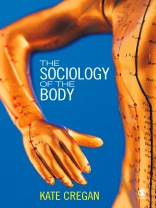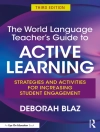‚Through a provocative analysis, this book contextualizes, explicates and critically analyses the work of those key theorists and texts that have been most influential in refocusing our gaze on human embodiment. Upon this foundation, the author builds her own distinctive theoretical framework towards the analysis of embodiment. This is a valuable addition to the field of body studies.‘
– Chris Shilling, University of Kent
Over the last 20 years, the social sciences have witnessed a remarkable inter-disciplinary surge of interest in the body. The latter is now recognized as a core concept and is the subject of intensive study at undergraduate and postgraduate levels. But how can we map this work? What are the contributions and differences of the various approaches? This lucid and authoritative text:
- Provides a critical evaluation of the work of Elias, Aries, Foucault, Bourdieu, Mary Douglas, Kristeva, Butler, Haraway and Bordo.
- Guides the reader through the inter-disciplinary influence of these ideas.
- Gives a clear and compelling analysis of the significance of the ′turn′ towards the body.
- Explains the complex way in which embodiment is formed across different social formations.
Clearly organized and powerfully expressed the book provides the best available guide to the ′turn to the body′ in the social sciences.
Inhaltsverzeichnis
PART ONE: OBJECT – THE REGULATED BODY
′Manners Maketh the Man′
Social Norms and Customary Control
Regimes and Institutions
Authority and Delimited Control
Place and Space
Habitus and Social Control
PART TWO: ABJECT – THE BOUNDED BODY
Blood, Bile and Phlegm
Ritual Bodies and Boundaries that Blur
Mind over Matter
Psychoanalysis and `Putting On′ the Body
PART THREE: SUBJECT – THE BODY OF DIFFERENCE
Technoscience
Remodelling and Redefining Boundaries
The Social Subject
Life-Experiences, Lifestyles and Life-Stages
Über den Autor
Kate Cregan is the author of Global Childhoods: Issues and Debates (SAGE, 2014), Key Concepts in Body and Society (SAGE, 2012), Sociology of the Body: Mapping the Abstraction of Embodiment (SAGE, 2006) and The Theatre of the Body: Staging Death and Embodying Life in Early Modern London (Brepols, 2009). The majority of her writing and research is based around understandings of the embodiment across time, space and culture-with particular reference to medical interpretations of the body, medical technologies and the representation in images of the body. Two of her allied interests are ethics (human, social and research) and writing pedagogies, in particular how becoming a writer informs the process of becoming a researcher. She has extensive experience teaching and researching in the humanities and social sciences and recently has co-ordinated the teaching of ethics to medical students across the five years of a medical degree. Currently, she is a senior lecturer in sociology in the School of Political and Social Inquiry, and she runs the interdisciplinary Graduate Researchers in Print writing program in the Faculty of Arts, Monash University, Melbourne.









![Cover von Sarah B. B. (University of Central Florida, Orlando, FL, USA) Bush & Kristin L. L. (Bellarmine University, USA) Cook: Simplifying STEM [6-12] Cover von Sarah B. B. (University of Central Florida, Orlando, FL, USA) Bush & Kristin L. L. (Bellarmine University, USA) Cook: Simplifying STEM [6-12]](https://static.worldofdigitals.com/thumb_webp/414/9781071932414.webp)


